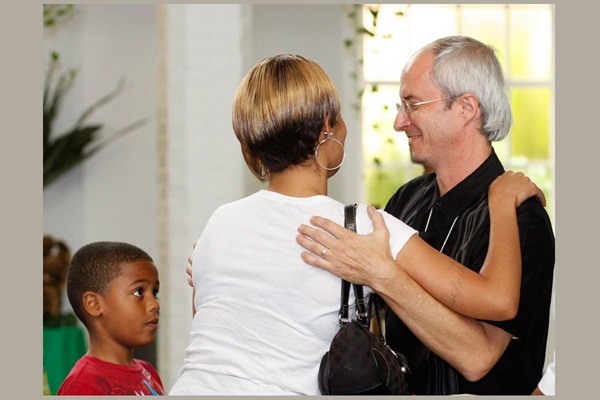The Christian faith was never intended to be a solo journey. The first followers of Jesus came together for teaching, meals, prayers, and more (Acts 2:42).
Our understanding of what it means to be a member is deeply rooted in our understanding of baptism.
Being a member means becoming as much a part of the church, the body of Christ, as our limbs are members of our own physical bodies. Just as our bodies are formed in the waters of the womb, so we become part of the body of Christ through the waters of baptism.
From the beginning, baptism has been sign of new birth, the door through which one enters the church. To become Christian is to receive a new identity in Christ. Baptism marks our becoming that new person
We are made new people pledged to live in a new way, “re-membered” into the fellowship of those who are committed to growing in faith.
Baptism begins our lifelong journey of faith. It makes no difference whether we are baptized as an adult or as a child; we all start on that journey at baptism. At baptism, we are all “babes in Christ,” whatever our physical age.
The meaning of membership is also deeply rooted in our Methodist heritage. John Wesley was clear that Christianity is a social religion, and that our growth in holiness of heart and life is deeply dependent on being in face-to-face community with others who are watching over us (and we over them) in love. It is through these face-to-face relationships that we experience what it means to be the body of Christ in the world.
For United Methodists, membership requires our active participation in a local congregation. When we become members, we profess our faith in God, our desire to live as disciples of Jesus Christ, and commit to join with our church community to keep the vows made at baptism. The vows we make include promises to faithfully participate in the life and ministries of our local congregation through our prayers, presence, gifts, service and witness.
Throughout our life, as we pray, study the scriptures, worship and share in fellowship with other Christians, we deepen our knowledge of and love for God. As we respond with compassion to human need and work for justice in our communities, we strengthen our capacity to love our neighbors. We confess and repent of our sins, ways in which we fall short of God's way. In this way, our inner thoughts and motives, as well as our outer actions and behavior, are aligned with God's will and testify to our union with God.
Rev. Mark W. Stamm explains, "What are the benefits of such a commitment? The primary benefit is the presence of the living Christ. Indeed, he promises that we will greet him in the midst of the faithful — '... where two or three are gathered in my name, I am there among them' (Matthew 18:20). The church continues to insist that our hearts are warmed as we hear the Scriptures read and proclaimed (Luke 24: 32), that the Risen Christ is known in the breaking of the bread (Luke 24: 35). Indeed, the mystery of the Risen Christ is present in the midst of my sisters and brothers. They hear my confession and proclaim God's forgiveness. They embrace me, they laugh and cry with me, and God heals me in and through all of that. My brothers and sisters know my shortcomings, and so they keep me honest, but they also know my potential, and so they call forth my gifts. They share their heritage and their wisdom and give me people to teach. I need their commitment to me, and they need me as well." (Our Membership Vows)
These are great questions to talk about with your pastor. Many congregations help new members learn more about what it means to be a member.
This content was produced by Ask The UMC, a ministry of United Methodist Communications.





